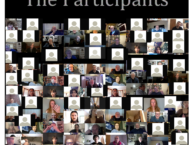The Principles and Processes of Differentiation of Self
- Friday, March 25; 9 a.m. to 4:15 p.m.
- Registration: 8:30 a.m.
- Grace Conferemce Room, Higgins University Center
- Free to Clark students and faculty (with University I.D.)
- Questions? E-mail Peter Titelman or call 413-584-7733
This conference will feature Daniel V. Papero, LCSW, PhD, is internationally recognized as one of the foremost teachers of Bowen theory and its application to family and organizational systems. He is on the faculty of the Bowen Center for the Study of the Family. Along with many articles and chapters on family theory and therapy, he is the author of Bowen Family Systems Theory (Allyn & Bacon, 1990).
At the heart of Bowen theory lies the concept of differentiation of self, and its application to the process of defining a self is central in Bowen family systems theory and therapy. Although the concept can be described rather simply, its nuance and detail present significant challenge to understanding. Often comprehension comes only with determined effort to use the concept personally, to apply it to oneself in addressing the problems one faces in one’s closest relationships.
The work to apply the concept of differentiation to oneself can be demanding but the return on the effort can be substantial. People work on understanding and applying the concept of differentiation of self in many ways and in many arenas. However, the premier arena is one’s own family. Systems thinking becomes a critical tool in the effort. People work to discern the facts of problems within a sea of emotion, opinions, and feelings. They observe and begin to manage their sensitivity and reactivity to important others. They strive to become clear about their own beliefs and principles and to govern themselves in accordance with them. The ultimate step comes when one “defines oneself” to important others. This includes observing and changing one’s behavior in the family of origin, nuclear family, and the extended family.
Bowen Theory
Murray Bowen, MD, developed a theory of human behavior based on a view of the family as a multigenerational system governed by the same laws of nature that govern all of life. He considered individual life to be guided in large part by what he termed the “emotional system.” His concept of “Differentiation of Self” described the capacity of an individual within a family to be responsible both for self and for the overall good of the group in the face of emotional pressure.
Knowledge of Bowen theory and its applications to family life, organizational functioning, and societal processes provides a unique approach to solving human problems based on the effort of the individual to manage self within the relationship system.
In the early 1950s, Bowen conducted research at the National Institute of Mental Health where he studied entire families on a psychiatric ward. He was able to observe how the family functions as a unit and how an individual may function as part of a larger emotional system without being aware of it. Bowen’s book, Family Therapy in Clinical Practice, is a collection of articles written over two decades.





